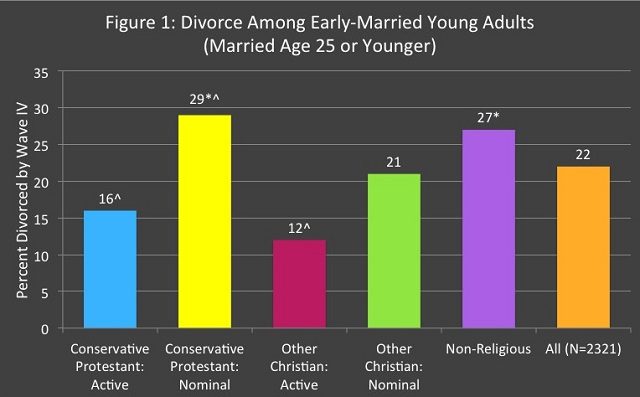
This is an installment of my series of replies to an article by Dr. David Madison: a pastor in the Methodist Church for nine years, who has a PhD in Biblical Studies from Boston University. It’s called, “Things We Wish Jesus Hadn’t Said” (Debunking Christianity, 7-21-19). His words will be in blue below. Dr. Madison makes several “generic” digs at Jesus and Christianity, in the written portion (it details a series of 12 podcasts):
A challenge for Christians: If you’re so sure Jesus existed, then you have some explaining to do. A major frustration is that, while believers are indignant at all the talk about Jesus not existing, they don’t know the issues that fuel the skepticism—and are unwilling to inform themselves.
Yes, I’m up to the “challenge.” No problem at all. I’m not threatened or “scared” by this in the slightest. It’s what I do, as an apologist. The question is whether Dr. Madison is up to interacting with counter-critiques? Or will he act like the voluminous anti-theist atheist polemicist Bob Seidensticker?: who directly challenged me in one of his own comboxes to respond to his innumerable attack-pieces against Christianity and the Bible, and then courageously proceeded to utterly ignore my 35 specific critiques of his claims as of this writing. We shall soon see which course Dr. Madison will decide to take. Anyway, he also states in his post and combox:
[S]o many of the words of Jesus are genuinely shocking. These words aren’t proclaimed much from the pulpit, . . . Hence the folks in the pews have absorbed and adored an idealized Jesus. Christian apologists make their livings refiguring so many of the things Jesus supposedly said.
The gospels are riddled with contradictions and bad theology, and Jesus is so frequently depicted as a cult fanatic—because cult fanatics wrote the gospels. We see Jesus only through their theological filters. I just want to grab hold of Christian heads (standing behind them, with a hand on each ear) and force them to look straight ahead, unflinchingly, at the gospels, and then ask “Tell me what you see!” uncoached by apologist specialists, i.e., priests and pastors, who’ve had a lot of practice making bad texts look good. . . . I DO say, “Deal with the really bad stuff in the gospels.” Are you SURE you’ve not make a big mistake endorsing this particular Lord and Savior? That’s the whole point of this series of Flash Podcasts, because a helluva lot of Christians would agree, right away, that these quotes are bad news—if no one told then that they’ve been attributed to Jesus.
Of course, Dr. Madison — good anti-theist atheist that he is — takes the view that we are not at all sure whether Jesus in fact said anything recorded in the Gospels in the first place. I don’t play that game, because there is no end to it. It’s like trying to pin jello to the wall. The atheist always has their convenient out (when refuted in argument about some biblical text) that Jesus never said it anyway [wink wink and sly patronizing grin], and/or that the biblical text in question was simply added later by dishonest ultra-biased Christian partisans and propagandists. It’s a silly and ultimately intellectually dishonest game, and so I always refuse to play it with atheists or anyone else, because there is no way to “win” with such an absurdly stacked, purely subjective deck.
In my defense of biblical texts, I start with the assumption that the manuscripts we have are quite sufficient for us to know what is in the Bible (believe it or not). Going on from there, I simply defend particular [supposedly “difficult”] texts, and note with appropriate argumentation, that “here, the Bible teaches so-and-so,” etc. I deal with the texts as they exist. I don’t get into the endlessly arbitrary, subjective games that atheists and theologically liberal biblical skeptics play with the texts, in their self-serving textual criticism.
Dr. Madison himself (fortunately) grants my outlook in terms of practical “x vs. y” debate purposes: “For the sake of argument, I’m willing to say, okay, Jesus was real and, yes, we have gospels that tell the story.” And in the combox: “So, we can go along with their insistence that he did exist. We’ll play on their field, i.e., the gospels.”
Good! So we shall examine his cherry-picked texts and see whether his interpretations of them can stand up to scrutiny. He is issuing challenges, and I as an apologist will be dishing a bunch of my own right back to him. Two can play this game. I will be dealing honestly with his challenges. Will he return the favor, and engage in serious and substantive dialogue? Again, we’ll soon know what his reaction will be. A true dialogue is of a confident, inquisitive, “nothing to fear and everything to gain” back-and-forth and interactive nature, not merely “ships passing in the night” or what I call “mutual monologue.”
*****
Dr. Madison’s fourth podcast is entitled: “On Mark 10:9, Jesus’ disastrous teaching about divorce.” Here is the “offending” passage:
Mark 10:6-9 (RSV) But from the beginning of creation, `God made them male and female.’ [7] `For this reason a man shall leave his father and mother and be joined to his wife, [8] and the two shall become one flesh.’ So they are no longer two but one flesh. [9] What therefore God has joined together, let not man put asunder.”
He starts out with a dig at evangelicals, who (according to a study he is drawing from) have a higher divorce rate than the general public, and higher than atheists as well. We see where he is going with this. That may be true, but if so, has to be closely examined. I have seen, myself, several social studies (and my major was sociology), indicating that couples who test high on religious piety and observance, have more successful marriages than their colleagues who lack such qualities.
He cites a study from Baylor University, which I located online. It, in turn, cites a more detailed report of the studies undertaken. In its section on marriage, the latter states:
Religion is popularly thought of as a social institution that encourages marriage and family growth, and conservative religious traditions are especially supportive of “traditional” family forms and values. But there are some interesting and not always predictable variations among and within different religious groups. . . .
Thus the common conservative argument that strong religion leads to strong families does not hold up. Some have argued that evangelical Protestantism (the typical example of “strong religion”) is correlated with low socioeconomic status, and that this explains the increased risk of divorce. However, new research by Jennifer Glass and Philip Levchak suggests that evangelical Protestants’ cultural encouragement of early marriage and discouragement of birth control and higher education attainment explain the higher divorce rate in counties with a larger proportion of evangelical Protestants.
What the same article also states, however, is the following:
Overall, couples who have higher levels of religious service attendance, especially if the couple attends together, have lower rates of divorce.
The “new research” cited in this article, from Glass and Levchak, was published in the American Journal of Sociology (February 2014). But it’s a lot more nuanced than these “triumphant” evangelical-bashing summaries would suggest. Charles E. Stokes explains:
[T]here is more to the story. Below I suggest a few additional considerations that are in order before rushing to declare conservative Protestants unwitting enemies of marriage.
. . . a few intriguing findings in the article are likely to get buried in mass media coverage of the main storyline. Early in the article, Glass and Levchak point out that “the average county would double its divorce rate as its proportion conservative Protestant moved from 0 to 100%,” but then they note “this effect is much smaller than the unaffiliated effect which is almost three times larger [emphasis mine].” The evidence from this article does not suggest that marriages would be better off in non-religious contexts but actually points in the opposite direction.
. . . it is important to note the comparison group throughout this study. Conservative Protestants are compared not to the non-religious (who, as noted earlier, are more divorce prone by comparison) but to all other major Christian groups.
. . . According to the logic of the article, it is the regularly involved conservative Protestants who should be most invested in promoting the “pro-marriage” norms that are paradoxically putting their marriages (and others’) at risk. But new data discussed below suggest just the opposite.
Figure 1 shows the proportion of ever-divorced young adults by religious affiliation and participation. These data are taken from the National Longitudinal Study of Adolescent Health (Add Health), a nationally representative study of young Americans who were first surveyed as teens in 1994 and most recently surveyed again as young adults in 2008. . . .

Data from the National Longitudinal Study of Adolescent Health (Add Health) Waves III and IV.
*Statistically significant difference at the .05 level from Other Christian: Active in logistic regression models.
^Statistically significant difference at the .05 level from Non-Religious in logistic regression models.The comparison groups in Figure 1 are designed to mirror those of the Glass and Levchak study, but they are divided into active (attending religious services two or more times a month) and nominal (attending less than two times a month) subgroups. As the figure shows, active conservative Protestants are statistically no more likely to have divorced in the first few years of marriage than their active peers from other Christian denominations, and both groups who attend church frequently are significantly less likely to have divorced than their non-religious peers. The group that stands out in Figure 1 is the nominal conservative Protestants, the most likely group to have divorced. Thus, in the exact group (early-marrying conservative Protestants) whose marriages Glass and Levchak would expect to falter, active conservative Protestants are above average in marital stability early in marriage, while nominal conservative Protestants fare worse than the non-religious.
This hardly confirms Dr. Madison’s point. It’s a disconfirmation. One simply had to look deeply enough into the study cited, to see the more specific relevant data.
Dr. Madison then changes his approach and goes directly after Mark 10:9, stating: “Here Jesus seems to imply that every marriage is designed by God.” Well, not exactly. Jesus is saying that marriage is a divinely instituted sacrament, that ought not be broken. That’s far different from claiming that every specific marriage in fact was divinely ordained: as if there is no human free will involved (including the usual range of possible human mistakes, folly, immaturity, haste and lack of preparation and planning, possibly excessive lust, etc.). These human mistakes (and sins, where applicable) are not God’s fault, and it’s beyond silly to blame Him for them. And among the human free will actions or beliefs that can help cause an unsuccessful marriage are religious nominalism and cohabitation.
Dr. Madison stumbles into the truth, by asserting: “it doesn’t follow at all that God has engineered every marriage or put His seal on every marriage.” Exactly right. Lots of people get married who have no business doing so. He continues: “Just think of all the bad marriages that have happened since the beginning. People have been forced to marry for all sorts of wrong reasons: money: family pressures and expectations, political alliances, . . . people miserable in bad marriages.” Bingo again! This sort of human error and bad judgment has caused untold misery, but it’s absurd to blame God for it.
In fact, we have data in the Bible regarding God advising the ancient Jews not to enter into certain unwise marriages: with foreign women who followed contrary religious practices (Ezra 10:2-3; cf. Dt 17:17; Neh 13:23-28). Therefore, it can’t be that “every [particular] marriage is designed by God.” The institution was designed and sanctioned by Him, and as we know, any and every institution can be corrupted and abused. These men were actually commanded to “put away” or “send away” foreign women who worshiped false gods (Ezra 10:4-19, 44; cf. 9:1-2, 14-15). In my own apologetics I have used these examples as biblical analogies for the Catholic practice of annulment, which is the most sensible way to deal with marriages that were “wrong” from the beginning.
Thus, God approved and approves of ending an ostensible marriage: the very opposite of Dr. Madison’s claims that God ordains each and every human marriage forever, no matter how bad the situation is. There are many instances of God not approving of particular marriages:
Leviticus 21:7, 14 They shall not marry a harlot or a woman who has been defiled; neither shall they marry a woman divorced from her husband . . . [14] A widow, or one divorced, or a woman who has been defiled, or a harlot, these he shall not marry; but he shall take to wife a virgin of his own people,
Nehemiah 13:27 Shall we then listen to you and do all this great evil and act treacherously against our God by marrying foreign women?
Ezekiel 44:22 They shall not marry a widow, or a divorced woman, but only a virgin of the stock of the house of Israel, or a widow who is the widow of a priest.
Tobit 4:12 . . . First of all take a wife from among the descendants of your fathers and do not marry a foreign woman, who is not of your father’s tribe; for we are the sons of the prophets. Remember, my son, that Noah, Abraham, Isaac, and Jacob, our fathers of old, all took wives from among their brethren. . . .
Mark 10:11-12 [Jesus] And he said to them, “Whoever divorces his wife and marries another, commits adultery against her; [12] and if she divorces her husband and marries another, she commits adultery.”
Jesus taught that a valid marriage was indissoluble, and that divorce in these circumstances constituted adultery. But of course the key question is what constitutes a valid marriage. Dr. Madison himself notes several factors that would be prime instances of grounds for Catholic annulment: “People have been forced to marry for . . . money: family pressures and expectations, political alliances.” Thus, Catholic theology has a very practical and compassionate way to help people trapped in such circumstances, while not undermining the institution of marriage itself, or promoting an unbiblical divorce, because an annulment is a declaration (one that exists even in secular civil law) that marriage never actually existed from the beginning.
It’s the Protestants and the Orthodox (lacking annulments) who labor under such difficulties: but they do not represent all of Christianity. Catholicism is by far the largest portion. But Dr. Madison continues with unwarranted caricatures and juvenile swipes at God: “But hey, God designed them all, God brought all these folks to the altar, or if they just ended up there against their will, God still added His seal of approval; no escape ever. God did all that joining. . . . How could God be so incompetent?”
No, He does not approve of every ill-advised marriage that people enter into, and it’s ludicrous to assert that He does. But that’s what atheists do: they always want to irrationally and unjustly blame God for the mistakes and sins of human beings. It’s always His fault (whether He exists or not, is the comic element in it all).
***
Photo credit: Houkouki (10-26-18) [Wikimedia Commons / Creative Commons Attribution-Share Alike 4.0 International license]
***













